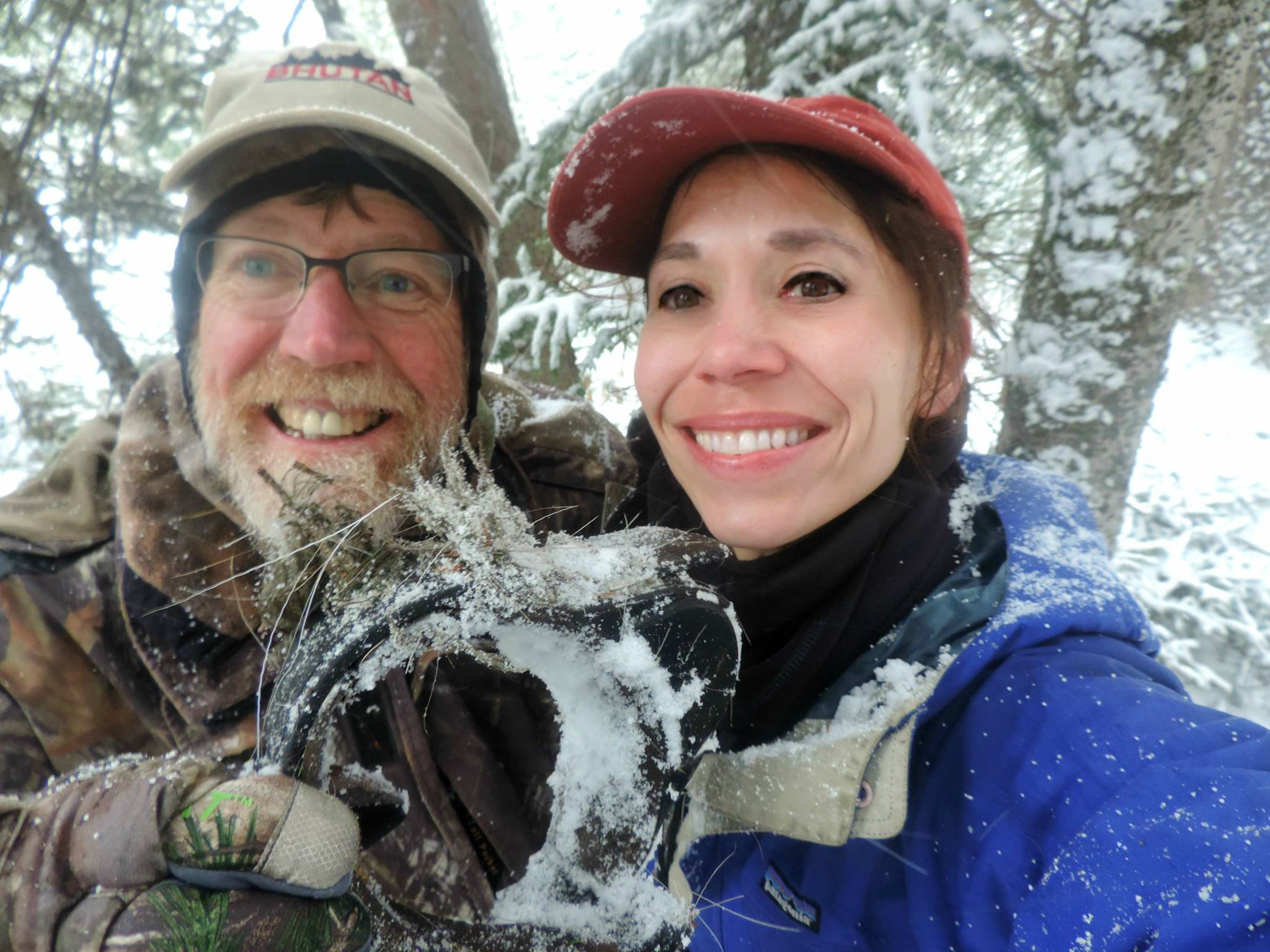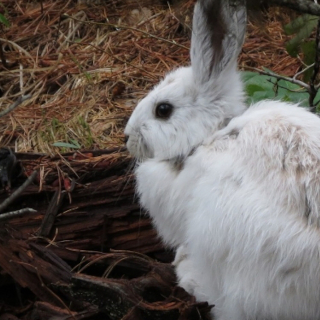Jen Feltner completes her PhD! Reflections by Scott

In April 2021 Jennifer Feltner successfully defended her PhD, titled “Effects of wolf and grizzly bear recovery on cougars in a multi-use system”. Some reflections by Scott:
Jen’s undergraduate degree was in … wait for it … Chinese Language and Literature. After graduation, she lived for a year in China, and then served in the US Army. From there she worked with think tanks, government agencies, and led a non-profit in Mississippi after Hurricane Katrina.
Somehow, and wonderfully, from that background she had a flash of insight to pursue a career in conservation biology. In her inimitable fashion, she dove into field biology experience and coursework to prepare herself.
And then, at the 2014 Society for Conservation Biology (SCB) meetings, she bought me for a coffee date. (I think when I first told this story to my kids they said something like ‘dad, is that even legal’?).
I had come to the SCB meetings in Missoula (Montana) from NCSU (where I was working at the time), and had agreed to be part of a Montana student chapter raffle fundraiser whereby students paid the student chapter for ‘coffee dates’ with professional conservation biologists.
I never did ask Jen how little she paid for that coffee date ... but I do know that when I went into that conversation I was overbooked with students and new transitions in my life, and the one thing I knew I would NOT consider is the possibility of taking on a new student.
But: as Jen described to me over coffee her life and goals, and hit me with her rapid fire list of written questions (such lists, I learned, were but one of Jen’s superpowers that new students should emulate), well, I was impressed. Also, I learned that she had already received a coveted NSF Graduate Fellowship, which would help support her.
So, I took Jen on as a PhD student at NC State University, and brought her to University of Montana when I moved back two years later.
Jen’s dissertation questions depended on hundreds of thousands, millions of carnivore data points over a 16 year period, in one of the most controversial carnivore rich landscapes on earth. To get these data required the trust and buy-in of folks from some 10 or so federal, state, non-governmental, and university partners. These data are precious to those who collected them and their agencies, and in some cases the agencies didn’t exactly have the best working relationships.
What is the DNA of a person who can build that kind of collaboration to pull off something that audacious? Well, it’s Jen’s DNA: Starting with building trust through integrity. And intelligence, both the emotional kind and the laser beam analytical kind. A deep appreciation for how natural history and human culture intersects with the biology side of conservation. Compassion, and the ability to listen, but also a tough and resilient core. Jen is a leader. And finally, in ways that you learn once you know Jen well, she has an indominable spirit.
It’s been an extraordinary pleasure having Jen as a student. We will all miss her, but look forward to what comes next!
-L. Scott Mills 7/1/21
P.S. You can follow Jen for updates on her research and next career steps on Twitter or on her website.
Feature Image: Jen and Scott in the field in the Southern Greater Yellowstone Ecosystem, retrieving a GPS collar from cougar M85, who conveniently cached his dropped collar with an elk calf.
